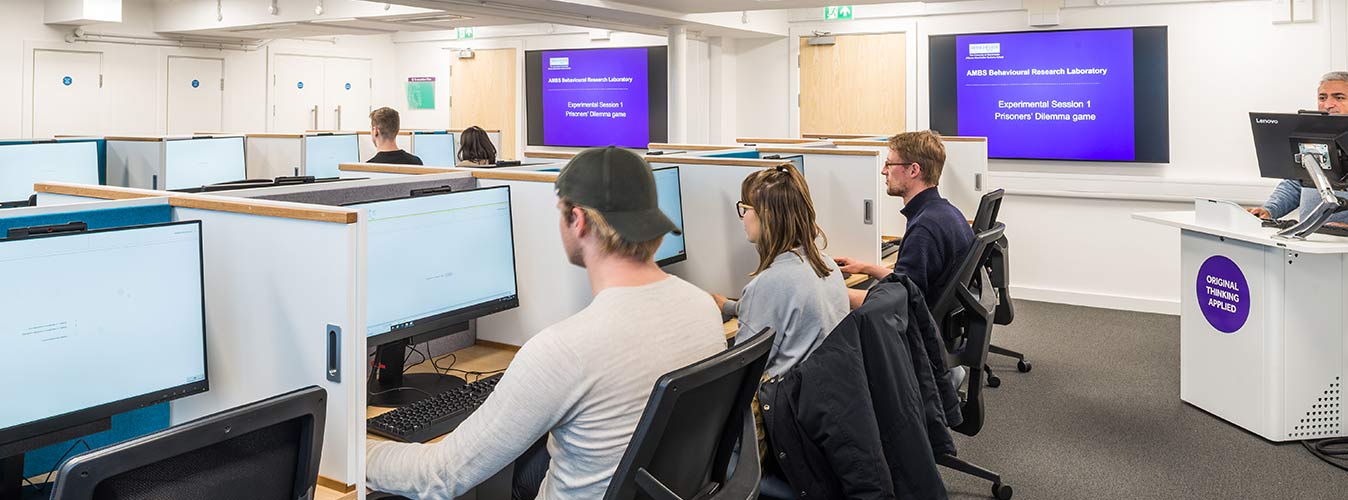Behavioural Research Laboratory
The new Behavioural Research Laboratory at Alliance Manchester Business School is a state-of-the-art facility for studying human behaviour in a controlled setting.
The new Behavioural Research Laboratory at Alliance Manchester Business School is a state-of-the-art facility for studying human behaviour in a controlled setting. It provides a dedicated space for conducting lab experiments across a range of applications concerning business and management.
From organisational and consumer behaviour to entrepreneurship, behavioural economics, behavioural finance and strategy – the laboratory is designed to support leading-edge research.
The laboratory’s facilities include:
- 43 networked computers in cubicles designed to allow participants to undertake individual tasks or take part in interactive multiplayer games.
- 2 individual testing rooms.
- Ante-room for focus groups, observations, participant briefings.
- Specialist equipment for eye-tracking and measuring physiological reactions, including skin conductance, heart rate, and other responses.
- Large-screen monitors for visual display during testing.
- AV facilities for broadcast and in-session communications.
The facility can be tailored to a variety of applications, from computer-based surveys, tasks or games to group and team tasks, to focus groups.
- Innovation and strategy: developing interventions to boost innovation; training exercises for creative problem-solving; business strategy simulations.
- Marketing: testing customer reactions to new products and advertisements; web design testing; physiological predictors of customer preference.
- Operations: Buyer-supplier interactions and inventory/production decisions; testing production systems and queues in healthcare and retail.
- Finance and investing: examining investor decisions and behaviour; evaluating crowdfunding pitches; testing fintech innovations and financial products.
- Policy: testing nudges for use in public and business policy; improving internal and external markets; developing behaviour change interventions.

